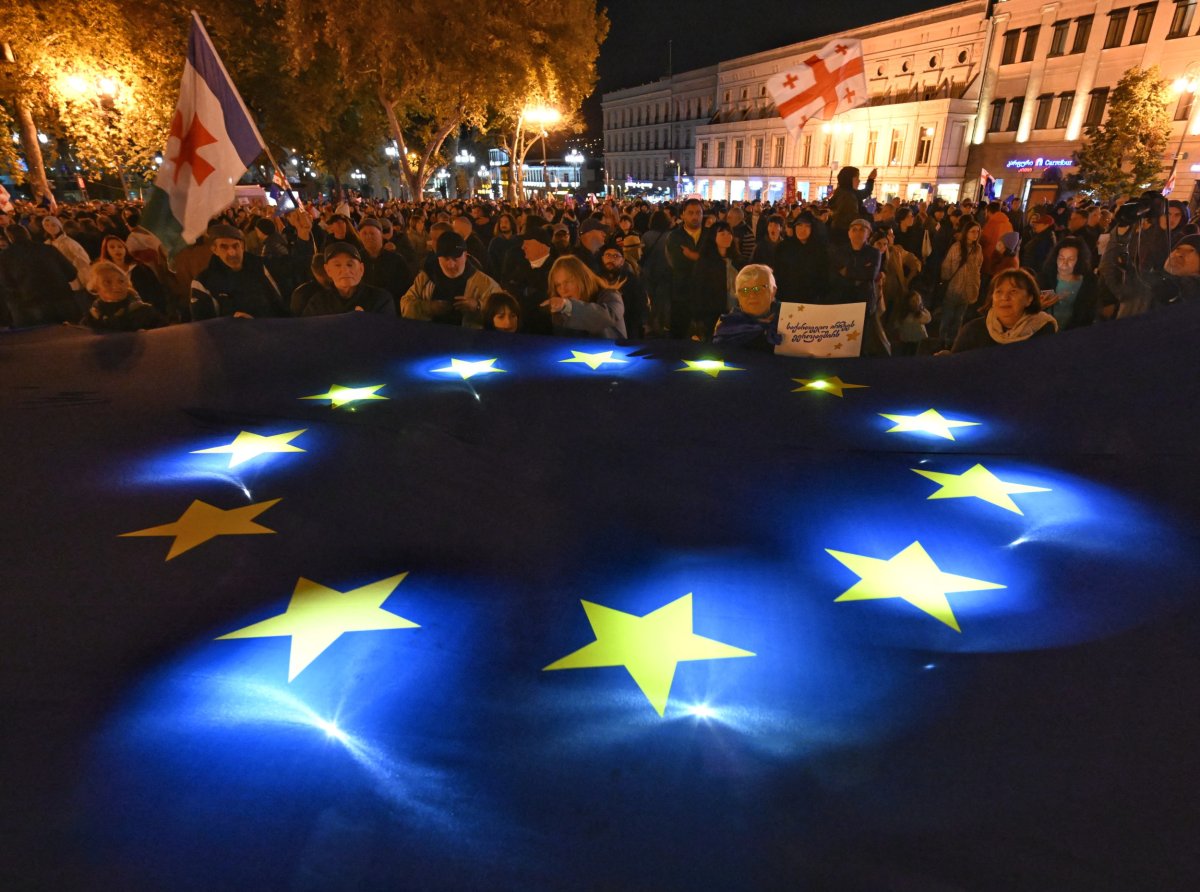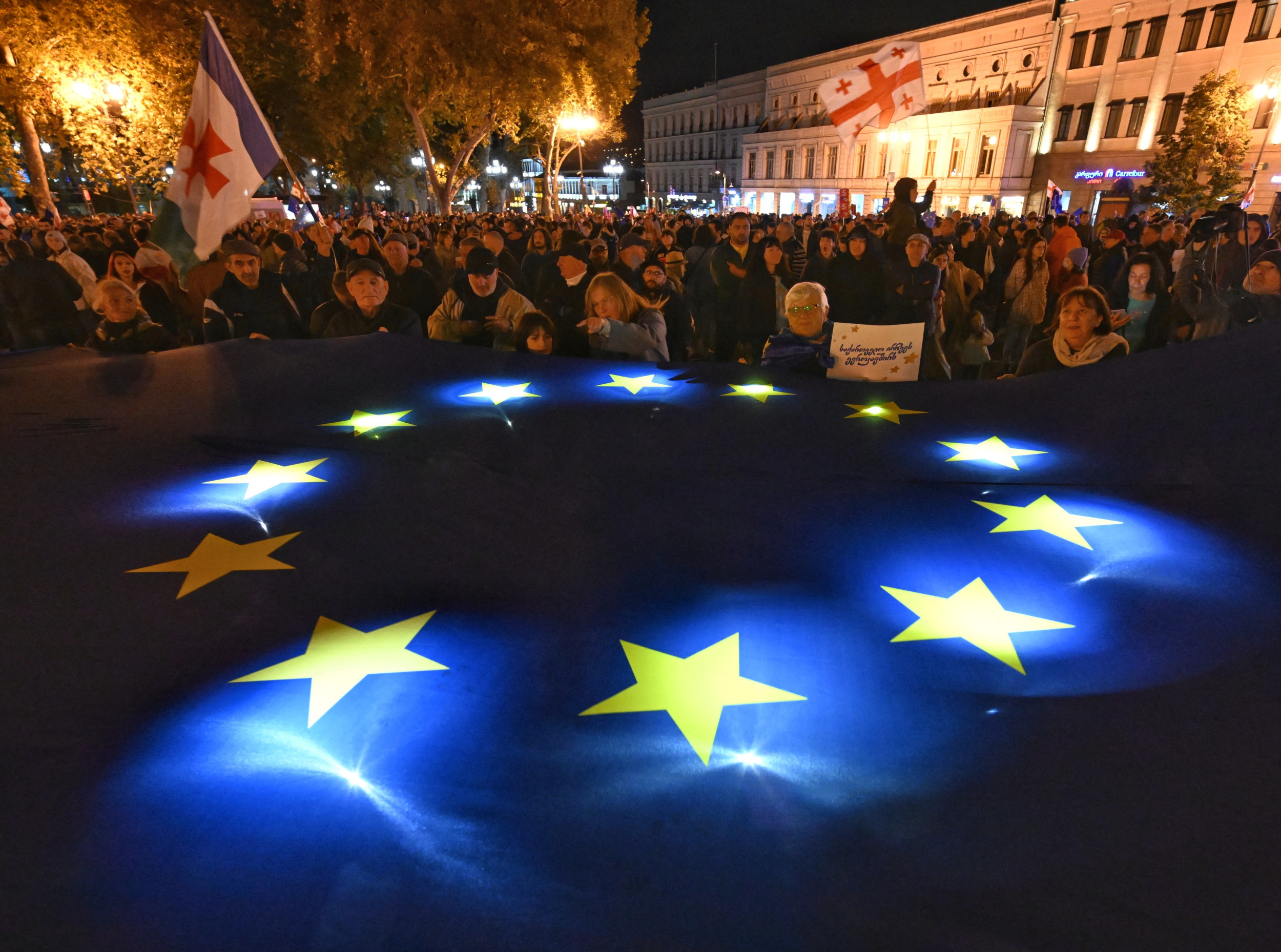As Georgia gears up for pivotal parliamentary elections, polls suggest that political factions advocating for NATO and EU membership are gaining traction against the ruling Georgian Dream party, which has fostered closer ties with Moscow.
Critics label this election a critical juncture for Georgia, emphasizing the need to steer the nation back toward democratic values and Western affiliations. With a population nearing four million, Georgia’s strategic location along energy transit routes makes the outcome of these elections particularly significant.
The ruling party, led by billionaire Bidzina Ivanishvili, has controversially characterized its opponents as a “global war party,” warning that they could lead Georgia into a precarious situation akin to Ukraine’s. Notably, Ivanishvili has voiced discontent with liberal EU policies, particularly concerning LGBTQ+ rights.

Photo by Vano SHLAMOV / AFP via Getty
Polling data from Edison Research indicates that while Georgian Dream may secure around 34 percent of the vote, a coalition of opposition groups could command up to 53 percent support. A staggering 64 percent of respondents believe the nation is on the wrong track.
The U.S. has previously raised concerns about electoral integrity in Georgia, citing issues of vote buying and intimidation, which has led opposition leaders to call for transparency during the electoral process.
Potential Setback for Putin
A victory for the opposition could significantly undermine President Vladimir Putin’s influence, especially following Moldova’s recent decision to pursue EU membership. Conversely, if Georgian Dream prevails, it would deal a blow to Western efforts to bolster democracy in the region.
The ruling party has faced increasing criticism for a perceived authoritarian drift, exacerbated by the introduction of a new law limiting foreign funding to media and NGOs. This move prompted the EU to halt accession discussions and led to reductions in U.S. aid.
The Institute for the Study of War articulated that the upcoming elections pose a risk to Georgia’s long-term integration with Euro-Atlantic structures and may allow Russia to regain influence.
Both parties have organized major rallies in Tbilisi leading up to the election, highlighting a highly charged political atmosphere.
Transparency International Georgia, supported by Western bodies, has raised alarms regarding potential irregularities in the electoral process. Their concerns include the new law, voter harassment, public employee mobilization, and the blending of state resources with the ruling party’s campaign.
In response, Georgian Dream’s chairman Shalva Papuashvili downplayed these allegations, accusing the opposition of attempting to delegitimize the election results echoing claims made after the 2020 elections.
“The actions of the opposition and their allies suggest a repeat of the 2020 scenario, creating a pretext for dismissing the election outcomes,” he stated, reflecting the contentious nature of the upcoming vote.
